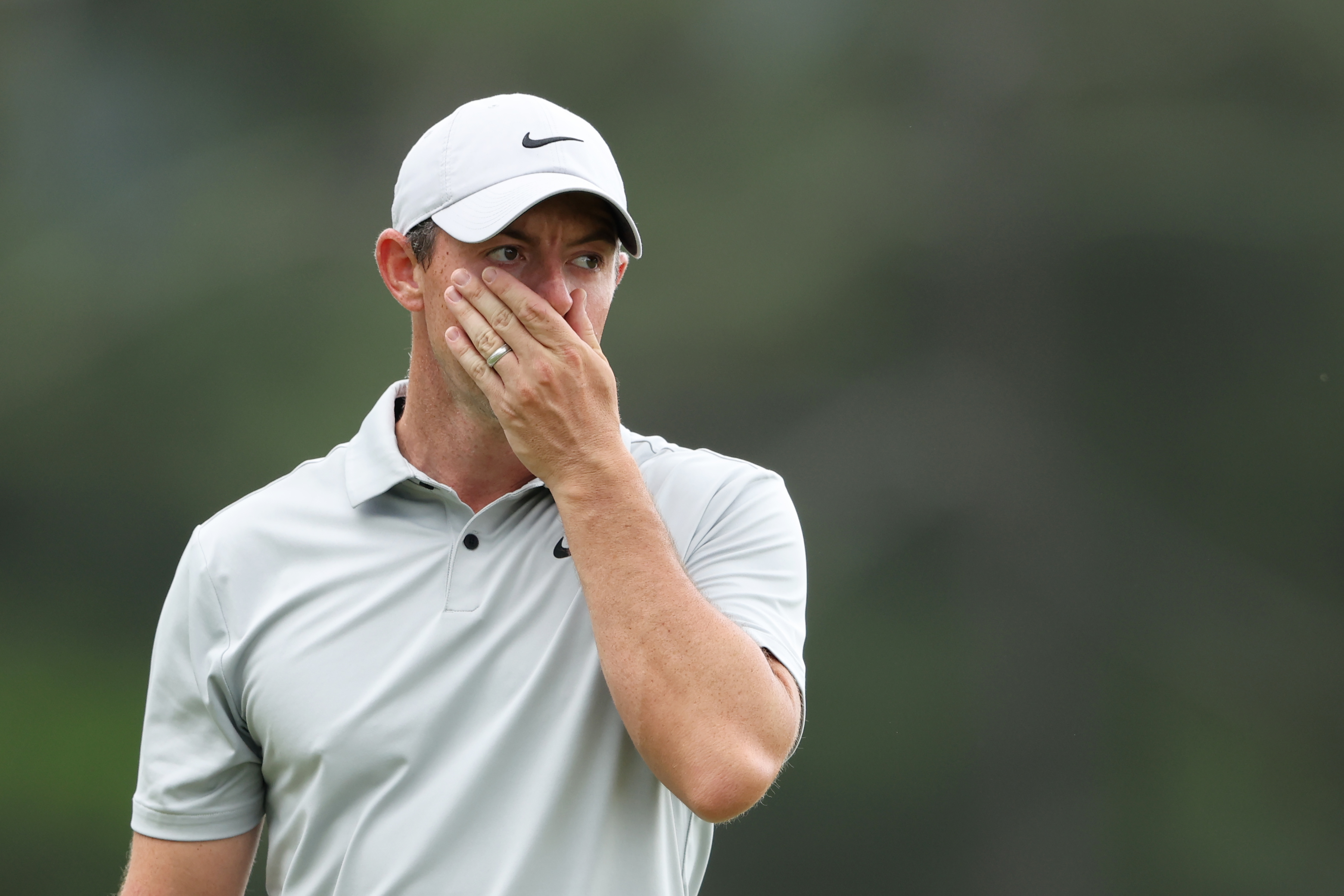AUGUSTA, Ga. — It’s the inherent nature of golf that even its finest exponents move inexplicably between the roles of pigeon and statue. Corey Conners won the Valero Texas Open five days ago and Kurt Kitayama claimed the Arnold Palmer Invitational last month. Neither will see weekend action at the 87th Masters. The list of the fallen includes those who might have been expected to survive the cut based on form (Min Woo Lee, who contended recently at the Players Championship) or formula (Tom Hoge, who leads the PGA Tour in Strokes Gained Approach but underperformed on a course known as the ultimate test of iron play).
But no exit is more surprising than that of Rory McIlroy.
The world No. 2 has missed only two cuts since the 2022 Masters. One came at the FedEx St. Jude Championship in August, and he went on to win the PGA Tour’s $18 million playoff prize two weeks later. The other was last month at the Players Championship, which he followed with a strong third-place showing at the WGC-Match Play. He won’t yet care what will follow this Masters disappointment.
As he heads home to Florida, McIlroy will be burning with fury, though not at others (he ain’t Sergio!). He sets a high standard for himself and at Augusta National, he fell woefully short. His poor play will offer a moment’s sustenance to the drooling slapnuts who populate the replies of LIV’s social media sycophants, but their target will neither notice nor care. The only verdict that matters is his own, and it will be harsh.
Masters 2023 leaderboard: Get the latest news from Augusta
Accomplishing the career grand slam is an enormous weight on McIlroy, ratcheting up through every spring so that by the time he turns down Magnolia Lane it’s rattling around his head like the deafening clank of an MRI machine. He then waits a few days in the echo chamber, politely answering questions on the subject, before it comes time to try anew. And that’s when the difficulties really arise.
McIlroy understands the challenges he creates for himself in the early going. He knows that getting off to a good start is key, but hasn’t broken par in the opening round in his last five attempts. He knows that on average winners miss only 20 greens for the week; he missed 16 in two days. He knows that eventual champions don’t come from the deeper recesses of the Day One leaderboard, that Augusta National isn’t favorable to chasers (unless they’re chasing Greg Norman). He knows that the Masters is the easiest cut to make all year when you discount the elderly and amateurs, but that one doesn’t have to be off by much to start feeling impatient, anxious and embarrassed.
“It’s been tentative starts, not putting my foot on the gas early enough,” he said on Tuesday, as if by way of prophecy.
His is a tough and volatile pursuit. Days and weeks get away quickly. Disappointment is constant, since even banner seasons involve much more losing than winning. But for McIlroy, worse than losing is not even putting himself in a position to win. He’ll struggle to draw positives from his truncated stay in Georgia, instead relying on the sanguine view he expressed before play began.
“Not every experience is going to be a good experience. I think that would lead to a pretty boring life,” he said. “You have to learn from those challenges and learn from some of that scar tissue that’s built.”
Scar tissue is the mind’s fibrous legacy of unfulfilled dreams, which are often what gives meaning and definition to sporting careers. At age 33, McIlroy may have other incomplete ambitions, but winning the Masters is the one every golf fan knows about. He’s now at the age when Phil Mickelson won his first major championship, which was his first of three green jackets. It’s futile to tell someone wired like McIlroy to care less. That acute desire is what earned him four majors, and what has Brooks Koepka on the cusp of his fifth. But he does need to understand that there’s time — not infinite time, but enough. There just needs to be more patience.

